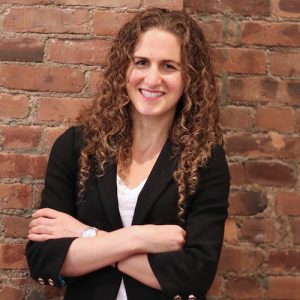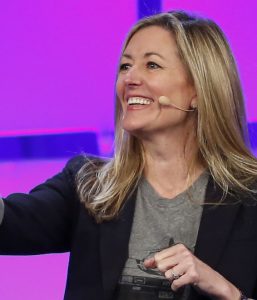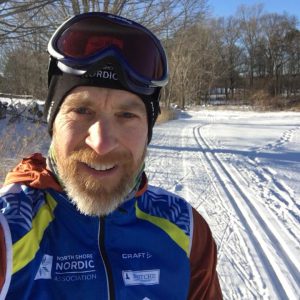Ep. 87: Sara Eckhouse – Executive Director, FoodShot Global ||
–
On episode 87 of Sourcing Matters we welcome the Executive Director of FoodShot Global – Sara Eckhouse. Launched in Fall of 2018, FoodShot Global is an investment platform aimed at accelerating food system transformation through an annual challenge – a call for “Moonshots for Better Food” that will create a healthier, more sustainable, and more equitable food system worldwide. FoodShot is a global consortium of world-class partners, including mission-aligned venture funds, banks, corporations, universities, and foundations. Together FoodShot will award up to $10 million in equity and up to $20 million in debt funding to innovative businesses.
.
 As Senior Advisor to Secretary Tom Vilsack at the U.S. Department of Agriculture, Sara Eckhouse focused on local and regional food systems, organic agriculture, and healthy food access. Sara launched and managed programs to support sustainable agriculture, and she has firsthand knowledge of the opportunities and challenges of combining sustainability with profitability in food value chains.
As Senior Advisor to Secretary Tom Vilsack at the U.S. Department of Agriculture, Sara Eckhouse focused on local and regional food systems, organic agriculture, and healthy food access. Sara launched and managed programs to support sustainable agriculture, and she has firsthand knowledge of the opportunities and challenges of combining sustainability with profitability in food value chains.
.
During our 45 minute discussion we review the goals and objectives of this innovative financing forum. We learn of some of the recipients of funding, and of the Foodshot Groundbreaker award – a prize-pool of $500,000 in philanthropic capital awarded to researchers, social entrepreneurs and advocates in the regenerative food space. We hear why Sara decided to take on this role at Foodshot Global after being an Obama Administration political appointee who for five years influenced US product differentiation.
.
Joining as cohost is Jay Vilar – founder, and a practitioner at ‘Nourish’ – a bespoke consulting company with a mission to educate, teach, and train people on the benefits of using food to heal your body and optimize your health. Located in Boston and Washington, DC – Jay has always been on the forefront of using optimal health techniques, and bio-hacking his nutrition to achieve remarkable results in his career.
.
Tunein to hear what it takes to make food and its production the next moonshot to save the planet.
–
co-host:
Jay Vilar
- Founder of Nourish
- A focus on Nutritional Therapy
- Rodale Institute Fellow
- Host of ‘listen to your mother’ show


 Prior to her current work, Kathleen served as a lead organizer of The Engine, an MIT initiative created to advance innovation. This venture fund and accelerator program was created to provide comprehensive support to transformative ideas from the formative stage to their most effective implementation. Kennedy was also awarded the Folio: 40, which recognizes the most innovative and influential people in the media industry, and named by the Harvard Club as one of Boston’s Most Influential Women of 2017.
Prior to her current work, Kathleen served as a lead organizer of The Engine, an MIT initiative created to advance innovation. This venture fund and accelerator program was created to provide comprehensive support to transformative ideas from the formative stage to their most effective implementation. Kennedy was also awarded the Folio: 40, which recognizes the most innovative and influential people in the media industry, and named by the Harvard Club as one of Boston’s Most Influential Women of 2017. Using adaptive grazing is one important strategy to increase the soil health of our public grasslands and rangelands. For episode 85 of Sourcing Matters, consultant Greg Horner discusses his recent work interviewing innovative public land managers across the US about their use of adaptive grazing as a tool to improve soil health, restore ecosystem function, and increase biodiversity. While these agency staff are increasing soil health, they are also increasing soil carbon and making the land they manage more resilient to climate change.
Using adaptive grazing is one important strategy to increase the soil health of our public grasslands and rangelands. For episode 85 of Sourcing Matters, consultant Greg Horner discusses his recent work interviewing innovative public land managers across the US about their use of adaptive grazing as a tool to improve soil health, restore ecosystem function, and increase biodiversity. While these agency staff are increasing soil health, they are also increasing soil carbon and making the land they manage more resilient to climate change.